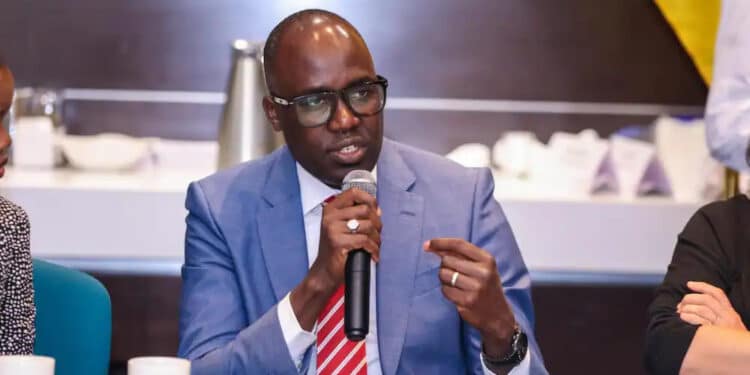Just over a year after Kenya was granted Major Non-NATO Ally (MNNA) status by the United States, the designation is now facing scrutiny in Washington. A bill introduced by U.S. Senator James Risch, chair of the Senate Committee on Foreign Relations, mandates a comprehensive review of the strategic partnership, raising questions about Kenya’s deepening ties with U.S. adversaries like China, Russia, and Iran.
Foreign Affairs Principal Secretary Korir Sing’Oei has downplayed alarm over the development, stating that the issues raised in the Congressional bill would be addressed while preserving Kenya’s sovereignty and national interests. “No need to be too excited,” Sing’Oei responded on X to Senior Counsel Paul Muite, who termed the matter “massive” and pointed to various concerns cited in the bill ranging from alleged links to Sudan’s Rapid Support Forces (RSF), corruption in infrastructure projects, to abductions and extrajudicial killings.
The proposed legislation calls for a detailed inter-agency review within 90 days of enactment. It directs the U.S. Secretary of State, in coordination with the Defense, Treasury, and Intelligence departments, to assess Kenya’s military and economic relationships with nations considered strategic threats to the U.S.
Key among Washington’s concerns is Kenya’s involvement in China’s Belt and Road Initiative (BRI), which has brought significant Chinese investments to Kenya’s infrastructure including the Mombasa-Naivasha Standard Gauge Railway and the Nairobi Expressway. The U.S. sees this growing dependency as a geopolitical risk.
The Trump administration had previously flagged human rights violations and a lack of financial transparency within the Kenyan government as additional red flags.
While the review does not necessarily signal an imminent revocation of Kenya’s MNNA status, it reflects rising unease in Washington over Nairobi’s global alignments. The outcome of this review could redefine U.S.-Kenya relations, potentially affecting military aid, trade cooperation, and diplomatic ties going forward.
For now, Nairobi is walking a delicate diplomatic tightrope, balancing its strategic partnerships with both Western powers and Eastern giants.

